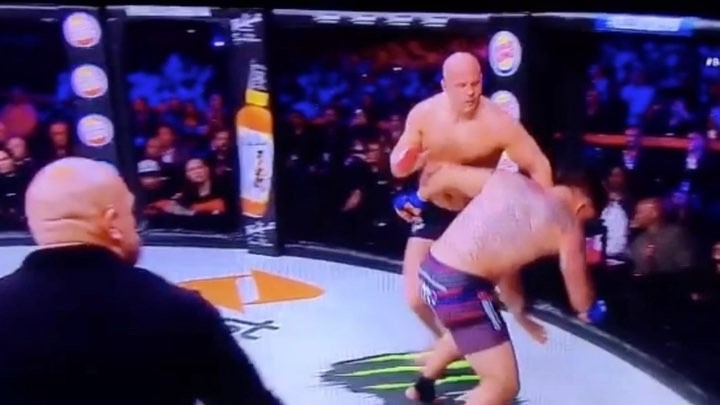How to KO your opponent
•••••••••••••••••••••••
When discussing striking power you have to look at several factors:
1️⃣The amount of force the athlete can generate.
2️⃣The accuracy to place that force on the optimal location. Optimal KO spots are the mandible and temple.
3️⃣The type of strike to inflict maximal damage.
.
One athlete and MMA legend who has shown exceptional ability for this is Fedor Emelianenko. While the Last Emperor may be past his prime last night he demonstrated he still has the skill to finish his adversaries very fast.
.
Throughout his career Fedor has shown an affinity for rotational strikes. In my last post I discussed the difference between linear strikes and rotational strikes.
.
“Rotational movement of the brain causes shearing forces that can lead to axonal damage. Shearing forces are most prominent near areas such as the midbrain section, where glial and axonal injury could result in severely debilitating consequences. Linear forces from a punch are often below the [mild traumatic brain injury] threshold.” This would indicate repetitive hook punches may be more damaging than jabs / crosses.
.
Model predictions have shown that the laterally impacted brain experiences a larger skull deformation, a higher in- tracranial pressure, and a higher shear deformation as compared to a brain impacted from the frontal direction. (Zhang 2004)”
.
“Higher linear and angular accelerations produced longer periods of unconsciousness (more than 3 times) on the side than at any of the other locations. (Hodgson 1983)”
.
References:
1️⃣Zhang, L., Yang, K. H., & King, A. I. (2004). A proposed injury threshold for mild traumatic brain injury. Transactions-American Society of Mechanical Engineers Journal of Biomechanical Engineering, 126(2), 226-236.
2️⃣Hodgson, V. R., Thomas, L. M., & Khalil, T. B. (1983). The role of impact location in reversible cerebral concussion (No. 831618). SAE Technical Paper.
3️⃣Safinia, C., Bershad, E. M., Clark, H. B., SantaCruz, K., Alakbarova, N., Suarez, J. I., & Divani, A. A. (2016). Chronic traumatic encephalopathy in athletes involved with high-impact sports. Journal of vascular and interventional neurology, 9(2), 34.

